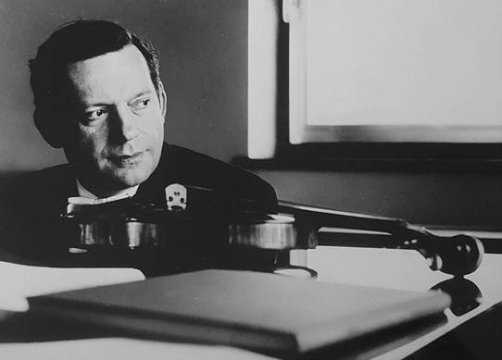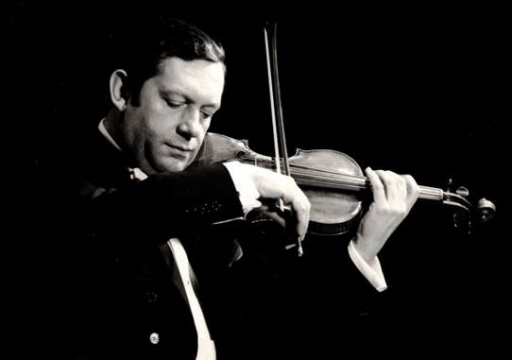An important fund for Belgian musical heritage
At the beginning of December, the Arthur Grumiaux Fund was entrusted to the music department of the Royal Belgian Library (KBR) by the King Baudouin Foundation, which had itself received the fund as a donation from the Arthur Grumiaux Foundation. 2021, which is the centenary year of the birth of Arthur Grumiaux, the internationally famous Belgian violinist, thus marks the installation of this exceptional collection of documents at the KBR, where it will be kept in optimal conditions. The archives will be accessible for research and will be evaluated.
Arthur Grumiaux (1921-1986) helped spread the fame of Belgian violinists around the world, following in the footsteps of his predecessors Henry Vieuxtemps and Eugène Ysaÿe. A child prodigy, who became a professional violinist when he was only 18, he rapidly enjoyed an international career. Playing at concerts and festivals around the world soon followed, both as a soloist and chamber musician. Arthur Grumiaux developed an exceptional musical partnership with the Romanian pianist Clara Haskil, with whom he recorded reference versions of the sonatas of Mozart and Beethoven.
Following the artist’s death, the Arthur Grumiaux Fund was established by the Foundation bearing the same name, which later donated the Fund to the King Baudouin Foundation. This exceptional archive includes correspondence, annotated handwritten and printed musical scores, photographs, concert programmes, contracts and sound archives. Grumiaux’s letters are a particularly precious source of information about his life and relationships, both personal and professional. Similarly, his annotated scores and recordings provide new material for research in the study of interpretation.
The advent of the Arthur Grumiaux Fund at the KBR music department will be accompanied by the arrival of a musicologist who, over a year, will take part in the classification, inventory and analysis of this ensemble of documents, coming from the violinist’s personal archives, so as to make them known not only to musicians and musicologists, but also to the general public. Research on the archives will lead to the development of greater musical and musicological expertise relating to Arthur Grumiaux, who was such an emblematic interpreter of the 20th century and yet who, up to now, has been the subject of very little in-depth research.



